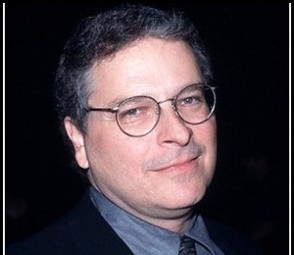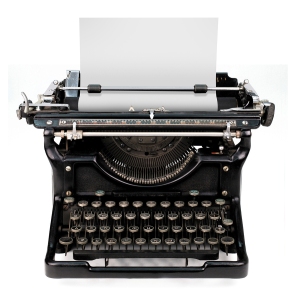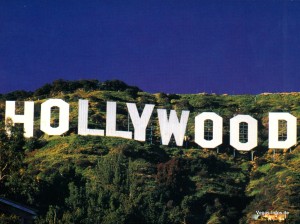 Not too long ago, I saw Johnny Depp’s movie, “Transcendence,” in the theater. I tried to think of a joke using the title that would describe how I felt while in the audience. Nap-tendence-y? I’m still working on it. I did catch myself squirming in my seat multiple times, longing for the movie to end. It was easy to pin why: I never cared. Not one bit. Who ARE these confusing and confused intellectuals explaining quantum computing and their love to us with equal raised eyebrow-time? The story structure didn’t invest in exposing the tender underbellies of the protagonists in an ordinarily human way for us to care about what happened to them during the subsequent and oh-so-long remainder of the film.
Not too long ago, I saw Johnny Depp’s movie, “Transcendence,” in the theater. I tried to think of a joke using the title that would describe how I felt while in the audience. Nap-tendence-y? I’m still working on it. I did catch myself squirming in my seat multiple times, longing for the movie to end. It was easy to pin why: I never cared. Not one bit. Who ARE these confusing and confused intellectuals explaining quantum computing and their love to us with equal raised eyebrow-time? The story structure didn’t invest in exposing the tender underbellies of the protagonists in an ordinarily human way for us to care about what happened to them during the subsequent and oh-so-long remainder of the film.
I went to the theater without reading any reviews, but reading them afterward, they echoed my experience. We love Depp. We love his movies. We all struggled to understand this movie because we wanted to love Depp in this one, too. But as the lights went up, a young man sitting in my aisle turned to his friend, his face aghast, and said, “So…the end of all technology is supposed to be some kind of ‘happy ending’!!?” (That’s not a spoiler. It’s where the film opens). Actually, I suppose the best thing you could say about the film is that the story structure follows a classic full circle: where it starts is where it ends, but in this case, that’s not an emotionally satisfying or even very clear beginning.
Besides registering as emotionally vapid, the story offered no unique message. “Beware of technology,” it seemed to say. Well, okay. How long have we been hearing that one? Since Charlie Chaplan’s “Modern Times?” The movie did not offer any solid emotional connections whatsoever: watch the girl scientist stumble-run down Kubrick-meets-Fellini-like hallways (repeatedly) as her dead husband’s projected yet self-aware cyber-image follows and watches her, wherever she goes…a love story!? Even the leading lady thought her cyber-love was creepy. How are WE supposed to feel any different? Over the whole of it, the movie was either emotionally confusing, barren, or skirting on repugnant. Give me a break. How the heck are we supposed to care against all that? There was too much emotional distance and muddy fields for an audience to overcome.
How important is it to get an audience invested in your characters? How important is eliciting an emotional response from an audience? How important is it to dig around so you can tell an emotionally honest story that others can feel? Evoking emotion in your audience, however you do it, is more important than any other single element in storytelling, whether you’re writing a novel or a screenplay, or even writing a damn TV commercial.
Here’s a very real-world example of why I believe this holds true, and not just for me:
Many years ago, I was invited to guest-judge adult fiction entries for the Kay Snow Award, given yearly by the Willamette Writers Group, based in Portland, Oregon. WW, as the members like to call it, is the largest and oldest writer’s group in the United States, which seems natural given that it was founded in a city containing a street hosting more published-author’s residences than any other street in our country. In addition to its plethora of traditionally published authors, Portland is a city populated by avid, cultivated and educated readers. Do a book signing event in Portland, and you best be ready for a crowd asking relevant questions about nuances you wrote deep in subtext that you thought only you noticed. So, being invited to judge adult fiction entries for this particular contest in this particular city was an honor, like receiving a seal of approval on one’s perspectives from a long-established, respected, and focused institution.
It was the first time I had been invited to judge any kind of writing contest, and I anticipated stumbling across great, undiscovered talent, of being humbled in the face of what would surely be impressive submissions to such an esteemed competition. 75-manuscripts (20-pages each) were handed to me at the WW Office, along with a printed page of judging guidelines, and a twinkle from the eye of WW’s mascot, office manager, and skilled author in his own right, Bill Johnson, who invited me to help with judging after reading some of my short stories.
He loosed the heavy box of submissions into my arms, stepped back, and nudged his aviator frame glasses back up the bridge of his nose. “You’ll need to decide on first, second and third places from these entries,” he said. “No pressure.” He chuckled. “There are other adult fiction judges, so all submissions are read by more than one judge, to keep things fair. It’s all anonymous. Nobody knows who else is judging, and there are no names on the manuscripts, just numbers for tracking. You’ve got two months. Most find that’s plenty of time.”
Once home, I dug in, unconvinced by Bill’s declaration that two months was long enough to contemplate and judge all 75-entries entrusted to me. What happened next stunned me. I reduced the pile of 75 to only 20 in about one hour! Entry after entry stumbled and bumbled so poorly across their first 3-pages that I read no further. It was painfully obvious that these quick eliminations could not hope to contend against even a dry yet skillfully written submission. The most common mistakes of the unpublished were presented like a tic list in bold letters. Next!
Judging the remaining twenty entries was where volunteering became work. It took another two weeks to cut those twenty to twelve, with many quiet, coffee-fueled reveries on each one. This is where the mountain got steep. All remaining entries were diverse in genre, all had strong merits. Unknown to me at the time, some remaining entries were already sold to publishing houses, such was the quality of the survivors, but eventually, I had to offer my opinion on which three stories should win and place, and back my decisions with a written explanation. My decisions would be hedged by those of the other two judges reading the same entries as I, but knowing that didn’t lessen my sense of determination to offer the most honest and professional assessment possible, no matter how green I was to this judging process.
After much deliberation, twelve became six. Now I was comparing tales with conscious applications of deep craft, all worthy of going to print just as they were, except for one humble story that gained entry to the pile of contenders in a manner vastly different, so different that no other remaining entry was in the same class. I had mysteries, check. A few of those. Crime thrillers, yes. All very well-crafted. Some brilliant short stories. One exploring modern concepts of fidelity that was very strong, acerbic and clever. So what was this little, bedraggled, grammar-challenged story that would not let me toss it aside for its petty sins? How could this piece that needed line-editing and polishing still be in the running with all these other stories that were honed to perfection, especially now, with the criteria so narrow and refined?
In the end, the bedraggled little story won. I had to do it. It was a brutally honest, gut-wrenching, gut-driven share, completely absent of false notes. This author was not trying to imitate the voice of any known, successful author. This author was not imitating any formulaic structure. No, this author shared a story based on a childhood memory, told by a damaged and authentic voice, with a decision to be made left hanging and unknown for an ending. The brave refusal of the author to offer any trite and easy answers was perfect, appropriate, and thought-provoking. Sure, it had grammar issues, but the story itself hit me hard emotionally and stuck with me emotionally, and it was the only story to do so with such quiet intensity and authenticity. In this sense, of the 75 contestants, it was unique.
After deliberating over the second and third places and finally choosing those, I submitted my findings to WW, and spoke with Bill about my experience. I shared my surprise that so many entries were just bad writing, easily eliminated from the list of contenders, and how I had expected better from this competition.
“I’ve been told by agents that the mix of writing skill one tends to see in competitions closely reflects the mix of quality in what they see submitted to them as literary agents,” he shared.
Really!? That single fact should give hope to anyone reading this who has worked on their craft. You’re already above the fray. Strike an emotional chord that can resonate with most readers, and you’ll be miles above the rest.
After all the judges’ votes were tallied, I had yet another surprise: the entries I chose to win and place in adult fiction were the entries that won those spots. Apparently, the other judges were as smitten by the honesty and fragility of the childhood memory piece as I had been. Like me, they decided the emotional impact of the story was more important than the occasional mistake in grammar, and therein is the moral of this story: whomever strikes a resounding emotional chord, wins.
Make Your Audience Care (dammit).
Easily typed, not easily done, I know. But this is the one single thing you can strive to accomplish in your storytelling that will help your work rise above the rest, whether submitting manuscripts or screenplays, to anyone, anywhere. If accomplished, this single feat will more than compensate for other errors your story might contain. Errors can be fixed and whining darlings slain. That’s why we need editors and other eyes on our work. But evoking emotion? That’s the job that only the author can wrest from their heart or their gut, and it’s where the magic lies, where your success resides, and where the keys to the kingdom are hidden.
You must, must, must make your readers care about your characters in order for your story to succeed. It’s up to you to figure out how to do that. Exposing a character’s vulnerabilities – the earlier in your story, the better – is a popular method. Exposing their vulnerabilities allows for natural human feelings of compassion and/or sympathy with your character. But if you don’t create a distinct and solid emotional connection between your protagonist/s and your audience early in your story, it doesn’t matter what calamities they must overcome, because nobody cares. Go ahead. Drop a bus on ’em. But really, we so want to care. Heck, we paid for the experience! But the author/screenwriter must TAKE us there and MAKE us care about the characters they torture for our entertainment.
All this said, there are a few fiction elements and structures I can think of that tend to inherently create emotional distance. Not what you want, these are elements best left in deft and proven hands. In other words, if you are not thoroughly seasoned, critiqued and found adept, don’t try this in your own document.
Emotional Killers:
Heavy Dialogue. Talking head type of heavy dialogue is a killer for so many reasons. I got started on this topic after watching Depp’s “Transcendence.” Science fiction is often plagued with this problem due to the need to explain alien worlds with which readers are unfamiliar. Dialogue that explains is referred to as ‘exposition,’ and this is frowned upon for good reason. There are better ways to bring the audience into your worlds, and techniques that apply to film as well as fiction, such as ‘show, don’t tell.’ But heavy dialogue stories are also capable of delivering clever intimacy, such as what was achieved in “My Dinner with Andre.” Many films by Richard Linklater, for example, also skirt that razor edge of too-much dialogue in such a way that he exposes common frustrations and creates dramatic tension! Heavy dialogue requires fabulous actors with a great director to pull off in a film, as well, and I’m not sure any novelist can fill tens of pages with dialogue without losing tens of reams of readers. Best to avoid creating manuscripts of soliloquies. Even Tarantino went too far with his diatribes in “Kill Bill.” If he can’t do it…you know…so tighten your dialogue as much as you can stand, cut and cut, and let your deepest philosophies pump up the volume from deep within your subtext and plot. When it comes to dialogue, less is most definitely more. A grimace of pain from our hero makes us feel more sympathy for him than we would feel if he bitched about it for two minutes.
Inciting Incident and Action – Too Early. Here again is where I think “Transcendence” failed. We are hit with a dreadful scenario immediately in the movie opening, and informed that, somehow, our leading couple, our protagonists whom we have yet to meet, are responsible for it all. Yikes! Emotionally, in the audience, our leading characters get a minus 10-points before we meet. The world is completely trashed now, so they must be jerks in some way, right? Then the story flashes back in time (the whole movie is a flashback), and we see the supposedly ‘loving couple’ cuddling in their lush garden that we already know is now vacant, dead, and in ruins like every other garden for a thousand miles. Pushing the protagonists even further from our emotional grasp, their ‘love’ reads as cool and intellectual, not flesh and blood (a lack of chemistry, perhaps?), and we know that our ‘creepy couple’ ruin the whole damn world in the end (since that’s how the story begins). The rest of the film shows us what happened, but we never really find a reason to like the scientist couple who destroy the world over their oh-so-special-but-we-don’t-get-why love, so we don’t have the means to care. While the subject matter of the movie asked the audience to contemplate the nature of life and consciousness, and the changes that new technology might mean in the near future, the story failed to engage because it failed to connect.
Action movies also tend to hurl us into the plot before letting us in on and close to the protagonist. I suppose if you can get away with a lack of emotional connection, it might be in an action movie, but if you look at the best pure action movies, ones with real heart like “Die Hard,” which is as much of a love story as an action story, you can easily see the difference that an emotional connection can make.
Regardless of our styles of word crafting and story structure, regardless of the genre in which we revel, in order for our audience to remain open to the spells we weave, we must connect them EMOTIONALLY with our characters before we hurl them all into hell. No modern storyteller can hope to pierce the toughened hide of a modern audience without FIRST evoking a sense of compassion and sympathy for their characters. Only then will audiences sit still and give a damn as we proclaim and illuminate some human truth through our characters’ struggles, choices, and metaphor-laden fates.
Strike an emotional chord in your writing like your career depends on it, because in many ways, for fiction writers and screenwriters, it actually does.













Recent Comments